News
FG bows to Pressure, reduces telecom tariff hike
Published
2 months agoon
By
Ekwutos Blog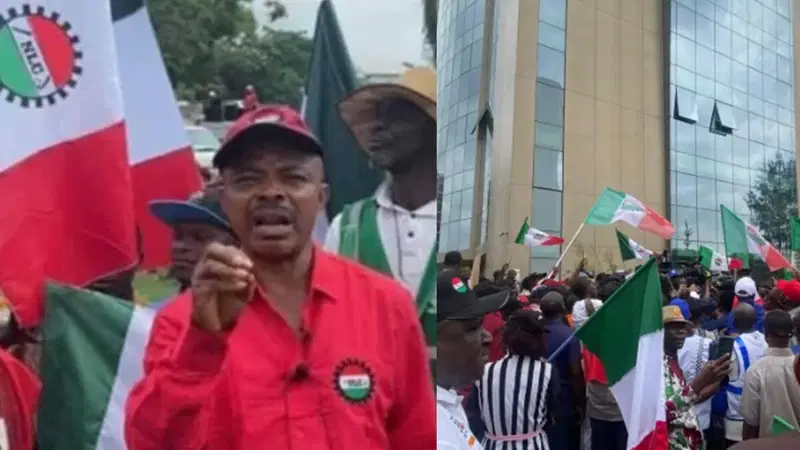
|
You may like
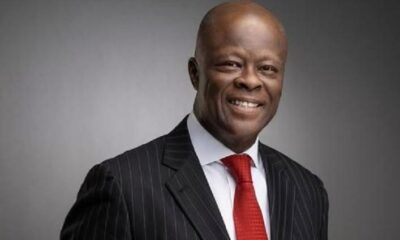

US tariffs won’t have much effect on Nigeria – FG


Wike hosts suspended Rivers lawmakers in UK
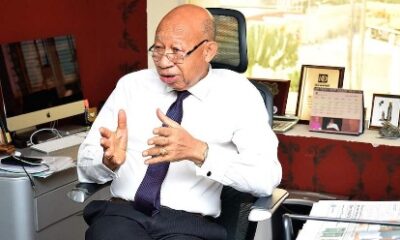

Pascal Dozie, Founder Of Diamond Bank Passes Away At 85


Tuface’s lover Natasha Osawaru replaced as Deputy Leader after shake-up in Edo Assembly
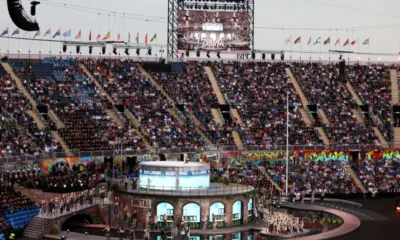

Nigeria seeks to host 2030 Commonwealth Games


Garnacho has to leave Old Trafford, make way for Osimhen – Rio Ferdinand
News
US tariffs won’t have much effect on Nigeria – FG
Published
4 hours agoon
April 8, 2025By
Ekwutos Blog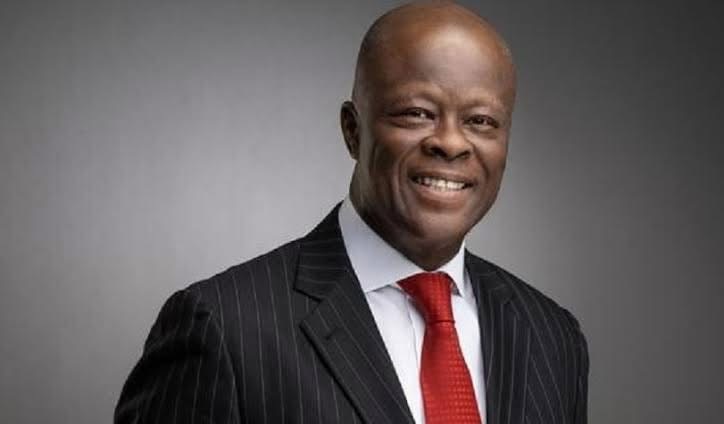
Nigeria’s Minister of Finance and Coordinating Minister of the Economy, Wale Edun, has stated that the recent 14 percent tariff imposed by the United States on Nigerian exports will have minimal impact on the Nigerian economy.
Edun made these comments during the inaugural Corporate Governance Forum organized by the Ministry of Finance Incorporated in Abuja on Monday. While acknowledging the seriousness of rising global tariff disputes, Edun emphasized that Nigeria remains largely shielded from significant effects, given that oil and mineral exports—Nigeria’s major exports to the U.S.—are exempt from the new tariffs.
He pointed out that the 14 percent tariff is relatively moderate compared to the 46 percent tariff imposed on Vietnam and the 34 percent on China. “Nigeria’s exports to the U.S. were N1.8 trillion, N2.6 trillion, and N5.5 trillion in 2022-2024, respectively. Fortunately, oil and mineral exports made up 92 percent, amounting to N5.08 trillion, while non-oil exports were only N0.44 trillion. Therefore, the impact of the tariff on exports is minimal if we maintain our oil and mineral export volumes,” Edun explained.
Despite his optimism, Edun acknowledged that the government’s economic management team is closely monitoring the evolving global situation. “We are revisiting the budget to examine the changes in assumptions that were used in its creation, considering the realities of the first quarter and future projections,” he added.
The 14 percent tariff imposed by U.S. President Donald Trump on Nigerian exports poses a significant risk to Nigeria’s $10 billion annual exports to the U.S., particularly threatening key sectors like agriculture, with experts and trade associations expressing concerns over the possibility of a global trade war.
According to the National Bureau of Statistics, Nigeria’s trade with the U.S. reached a total of N31.1 trillion between 2015 and 2024. A breakdown of the foreign trade report reveals that N16.4 trillion was recorded as exports, while imports amounted to N14.71 trillion, resulting in a trade surplus of N1.64 trillion.
The data showed that Nigeria’s exports to the U.S. were valued at N344.27 billion in 2015, N1.03 trillion in 2016, and N1.73 trillion in 2017. Exports continued to rise, reaching N1.82 trillion in 2022, N2.61 trillion in 2023, and N5.52 trillion in 2024. However, there was a notable dip in 2020, with exports falling to N382.19 billion due to the pandemic.
Earlier, the Federal Government acknowledged that several of Nigeria’s oil and non-oil exports would face challenges as a result of the new U.S. tariffs. The tariff could potentially undermine the competitiveness of Nigerian products in the U.S. market, a concern raised by the Minister of Industry, Trade and Investment, Dr. Jumoke Oduwole, in a statement on Sunday.
News
FAAN ends physical luggage checks at Lagos Airport
Published
24 hours agoon
April 7, 2025By
Ekwutos Blog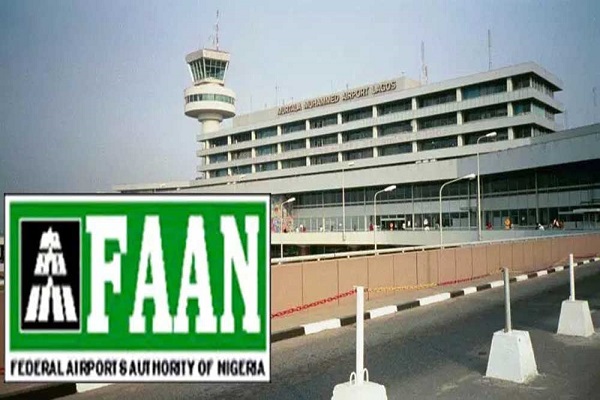
…deploys advanced scanners for international flights
The Federal Airports Authority of Nigeria (FAAN) has announced a major upgrade in passenger facilitation for international flights by phasing out physical luggage screening at both the old and new terminals of the Murtala Muhammed International Airport (MMIA), Lagos.
This move follows the installation of state-of-the-art Rapiscan screening machines and surveillance systems at key checkpoints within the terminals. The new technology is designed to streamline security processes and reduce the time spent during pre-flight check-ins.
According to checks by The Nation, FAAN has already installed four high-capacity screening machines at the MMIA capable of detecting illicit drugs, concealed currency, and other prohibited items. Physical searches will now only occur when suspicious items are flagged by the Rapiscan systems.
To support this enhanced security architecture, surveillance monitors are being mounted for use by border control agencies such as the Nigeria Immigration Service, Nigeria Customs Service, NDLEA, and the National Agricultural Quarantine Service.
These will all be linked to a central control system to monitor operations and ensure accountability, with personnel identities displayed for transparency.
Officials confirmed that the long-standing manual search table at the terminal entrance will be dismantled this week, significantly easing the passenger flow process.
The Orion 928DX, the newly deployed scanning technology, is regarded as one of the most advanced systems in global aviation and forms part of a broader effort by FAAN to modernize Nigeria’s airport security with e-gates and enhanced inter-agency collaboration.
The sophisticated equipment, investigations reveal, combines artificial intelligence with real-time threat detection capabilities and is already redefining the way baggage is screened at the country’s busiest airport.
Fitted with crystal-clear digital displays, the machines -Orion 928DX boasts a range of smart features designed to detect narcotics, explosives, organic materials, and undeclared currency with astonishing accuracy.
Speaking in an interview, FAAN’s Head of ICT at the Lagos International Airport , Juliet Chima – Ogechukwu , said its personnel have been trained on the use of the new facilities , which will go a long way to boost safety and security at the terminal.
She said: “As luggage passes through the machine, it performs real-time scanning, quickly flagging suspicious content and highlighting it clearly on screen.
The system shows you exactly where the threat is located. With narcotics and explosives, it instantly detects, targets, and provides a clear image using its Narscan technology.
“Unlike earlier systems that could detect one threat at a time, the Orion 928DX handles simultaneous scans, detecting both explosives and narcotics in real time.
“Its integrated algorithm also allows it to adapt and absorb future upgrades, a feature many older systems lack. “This machine can evolve with new technologies. It’s designed to grow.
“The system also includes a dual-mode auto-set feature for detecting organic substances, such as agricultural products, often concealed in luggage.
It identifies them through two scanning modes, range and interactive, enabling security personnel to isolate specific pixels and trace their origins within the bag.
“It even goes a step further by detecting currency when travelers carry more than permitted. “It won’t tell you it’s naira, but it will highlight the excess. You then investigate and confirm the currency type.”
She affirmed that after the installation of the new machines, many aviation security personnel have been trained on both users and technical support programmes facilitated by the equipment manufacturer in the United Kingdom.
She said: “Now we continue training and retraining our teams to ensure optimal performance. MMA currently operates six Orion 928DX machines and four Orion 927DX systems, with plans to receive four more units in the coming weeks.
“The upgrade is also ongoing at other international airports across the country, including Nnamdi Azikiwe International Airport in Abuja.
With the new machines in place, MMA is rethinking the need for manual baggage checks altogether.
“With this technology, we really don’t need to stand by a table and start opening bags. Once the system identifies a suspicious item, it gives us an exact image and location. Then, if necessary, we proceed to a secondary search, quickly and efficiently.”
She said plans are underway to set up a private screening cubicle beside the scanning area for more discreet checks, with additional monitors installed to allow other security agencies real-time access to flagged visuals.
“Let me put it this way, with this machine, we can dismantle the old manual search tables. That’s exactly what we’re looking at.”
Also speaking, FAAN’s Director of Aviation Security Services, Albert Igbafe Afegbai said collaboration is being strengthened among security agencies to achieve the new operational architecture.
According to him, the ongoing test run of the newly introduced e-gates at the Lagos International Airport will reshape passengers’ experience.
“We are trying to eliminate physical contact and unnecessary interference during travel. With this new e-gate system, passengers only need to scan their boarding passes to pass through. Without a valid pass, access is denied — and that significantly reduces touting and prevents unauthorized access,” Afegbai.
To further enhance security operations, FAAN he said has also installed a new set of high-performance baggage screening machines designed to detect narcotics, undeclared currencies, and other contraband.
Afegbai disclosed that prior to these installations, existing equipment fell short in detecting certain prohibited items. With the acquisition of modern machines, FAAN is also facilitating capacity building across various agencies including the NDLEA, DSS, Immigration, Quarantine and Customs.
“We are now installing multiple monitors on each screening machine, so every agency has access to a dedicated screen.”
News
Ayuba Umar slams Nasarawa govt over 3-day Abuja retreat
Published
1 day agoon
April 7, 2025By
Ekwutos Blog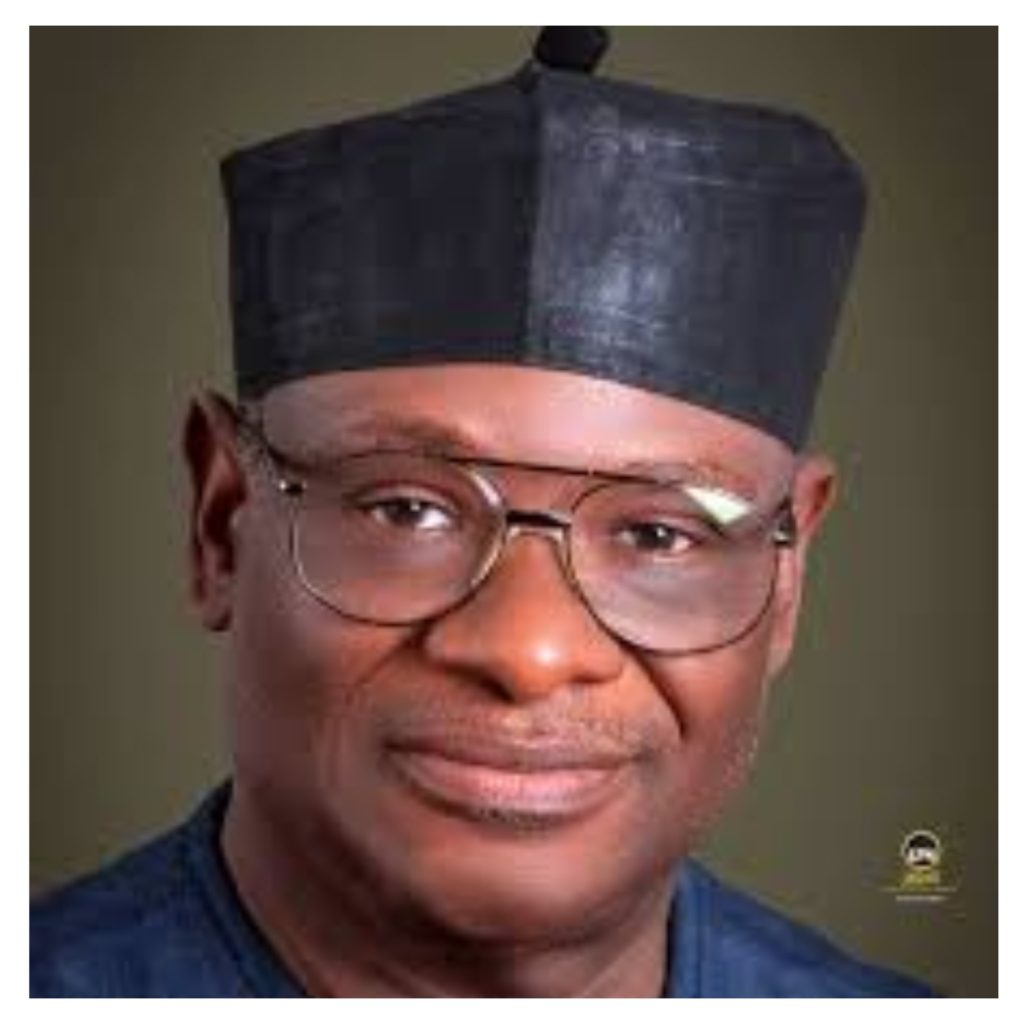
A founding father of Nasarawa State, Ayuba Umar, has criticized the state government over its decision to hold a 3-day official retreat in Abuja, describing it as “draining of the public treasury and a total waste of scarce resources.”
The retreat, which commenced Monday in the Nigerian capital, is being organized in collaboration with the Administrative Staff College of Nigeria, ASCON.
According to government sources, the program is aimed at bridging the communication and coordination gap between political office holders and government functionaries, with a focus on enhancing effective service delivery.
However, Umar took to Facebook to express strong reservations about the retreat’s location and purpose, questioning the rationale behind hosting the event in Abuja rather than within Nasarawa State.
“A significant concern arises regarding the decision to hold the workshop in Abuja and not in Lafia or any other city in the state.
“Given the current strain on the public treasury from corruption, this could be viewed as an inappropriate allocation of resources.” Umar stated.
He argued that the event would have had more economic and social impact if held in Lafia, the state capital, or any other local city, where it could stimulate local businesses and promote grassroots engagement.
“For goodness’ sake, what is ‘Bridge the Gap between political office holders and government functionaries in the State?’” Umar queried, criticizing the theme of the retreat as vague and lacking direct relevance to the pressing needs of citizens.
He further accused the Governor Abdullahi Sule-led administration of prioritizing “financial gain and extravagant expenditures” over citizens’ welfare, adding that such lavish retreats do little to address the state’s growing challenges, including youth unemployment, food insecurity, and economic hardship.
“This workshop represents a considerable misallocation of scarce resources, especially in light of the state’s challenges,” he added.
“The state government must reconsider its resource management strategies to better meet the needs of its citizens and foster sustainable development.”

US tariffs won’t have much effect on Nigeria – FG

Wike hosts suspended Rivers lawmakers in UK

Pascal Dozie, Founder Of Diamond Bank Passes Away At 85
Trending

 Trending6 months ago
Trending6 months agoNYA demands release of ‘abducted’ Imo chairman, preaches good governance
- Business6 months ago
US court acquits Air Peace boss, slams Mayfield $4000 fine

 Politics6 months ago
Politics6 months agoMexico’s new president causes concern just weeks before the US elections
- Entertainment6 months ago
Bobrisky transferred from Immigration to FCID, spends night behind bars
- Entertainment6 months ago
Bobrisky falls ill in police custody, rushed to hospital

 Politics6 months ago
Politics6 months agoRussia bans imports of agro-products from Kazakhstan after refusal to join BRICS

 Politics6 months ago
Politics6 months agoPutin invites 20 world leaders
- Politics1 year ago
Nigerian Senate passes Bill seeking the establishment of the South East Development Commission.

